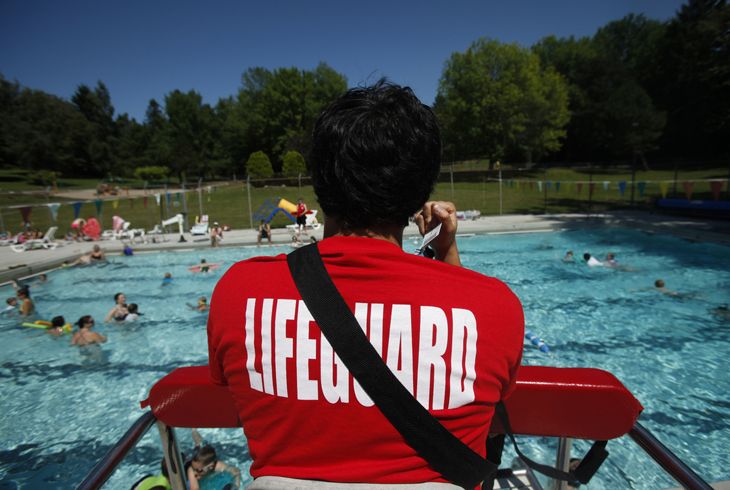Being a lifeguard is one of the most crucial roles in ensuring the safety of swimmers at pools and beaches. While the responsibility is immense, it can also be a demanding job that requires constant vigilance and focus lifeguard. Maintaining your concentration during long shifts is essential not only for your safety but also for the safety of others. Here are some effective tips to help you stay alert and focused as a lifeguard.

1. Prioritize Your Sleep
Getting adequate rest is fundamental to staying alert. Lifeguards often work long hours under the sun, which can be exhausting. Ensure you prioritize quality sleep by setting a consistent sleep schedule. Aim for 7-9 hours of sleep per night, and consider short naps during breaks if you’re feeling fatigued. This will help improve your overall focus and reaction time.
2. Stay Hydrated
Dehydration can lead to fatigue and decreased cognitive function. As a lifeguard, it’s crucial to stay hydrated throughout your shift. Keep a water bottle handy and take regular sips, especially in hot weather. Avoid excessive caffeine or sugary drinks, as they can lead to crashes in energy levels.
3. Take Regular Breaks
Standing watch for extended periods can lead to mental fatigue. Schedule regular breaks to give your mind a rest. Use this time to stretch, walk around, or simply step away from your post for a few minutes. Engaging in brief physical activity can help rejuvenate your focus and energy.
4. Stay Engaged
Boredom can be a significant factor in losing focus. To keep your mind engaged, practice active observation. Instead of just watching for danger, take note of swimmers’ behaviors, identify potential hazards, and assess weather conditions. This active engagement will help sharpen your attention and awareness.
5. Utilize Team Communication
Effective communication with your fellow lifeguards is essential. Establish a system of signals or routines to keep everyone informed. Regularly checking in with your team can help maintain a shared sense of responsibility and alertness. If you notice someone looking fatigued, offer to take over their watch for a bit or suggest a break.
6. Practice Mindfulness Techniques
Incorporating mindfulness techniques can greatly enhance your focus. Simple practices such as deep breathing exercises, meditation, or visualization can help center your thoughts. Spend a few minutes during breaks to practice these techniques; they can reduce stress and improve mental clarity.
7. Keep the Environment in Mind
Being aware of your surroundings can help you stay focused. Make it a habit to routinely scan your area for any unusual activities or potential risks. The more familiar you are with your environment, the easier it will be to detect changes that may require your attention.
8. Set Goals for Your Shift
Establish specific goals for each shift to maintain motivation and focus. These can be as simple as observing a certain number of swimmers, ensuring proper safety protocols are followed, or practicing rescue techniques during downtime. Having a purpose can keep you engaged and alert.
9. Stay Positive and Motivated
Lastly, maintain a positive attitude towards your job. Remind yourself of the impact you have on the safety and well-being of others. A positive mindset can enhance your focus and motivation, making your shifts feel more rewarding.
Conclusion
Maintaining focus as a lifeguard is essential for ensuring the safety of swimmers and the overall success of your role. By prioritizing rest, staying hydrated, taking breaks, engaging actively with your environment, and maintaining open communication with your team, you can enhance your alertness and vigilance. Implement these tips into your routine to ensure you are always at your best while on duty. Remember, your vigilance could be the difference between safety and danger.
